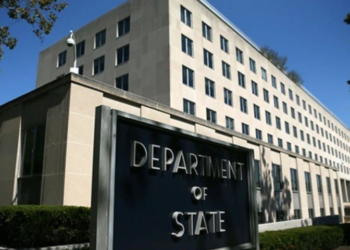Budapest, April 3, 2025: Israeli Prime Minister Benjamin Netanyahu has arrived in Hungary for a four-day official visit, marking his first trip to European soil since the International Criminal Court (ICC) issued an arrest warrant against him for alleged war crimes in Gaza.
Despite being a signatory to the ICC, Hungary’s Prime Minister Viktor Orbán has openly dismissed the court’s ruling. Just hours after the warrant was announced in November, Orbán declared that Hungary would not enforce the order, guaranteeing Netanyahu’s protection.
Recent reports suggest that Orbán’s government is even considering withdrawing from the ICC, a move that would further distance Hungary from international legal obligations.
The visit comes as Israel continues military operations in Gaza, with Netanyahu recently stating that Israel is “seizing territory” and intends to “divide up” the besieged region. This follows the collapse of a fragile ceasefire, leading to renewed bombings and ground offensives.
This marks Netanyahu’s second international trip since the ICC warrant, following his February visit to the U.S., where former President Donald Trump signed an executive order imposing sanctions on the ICC over its investigations into Israel.
The EU’s 27 member states, all ICC signatories, remain divided on whether to enforce the arrest warrant. Spain, the Netherlands, and Finland have stated they would uphold the ruling while Poland earlier considered hosting Netanyahu for the 80th anniversary of Auschwitz’s liberation without enforcing the warrant. Germany’s chancellor-in-waiting, Friedrich Merz, suggested exploring ways to allow Netanyahu’s visit without the risk of arrest.
Hungary’s decision to host Netanyahu has drawn strong criticism from human rights organizations. Amnesty International condemned the move, stating that “Hungary’s invitation shows contempt for international law” and calling Netanyahu an “alleged war criminal” responsible for crimes against humanity. Human Rights Watch accused Orbán of further undermining the rule of law, warning that Hungary’s stance sets a dangerous precedent.
In response, the ICC reiterated that member states are legally bound to enforce its rulings, stating that it is not up to individual governments to determine the validity of the court’s decisions.








